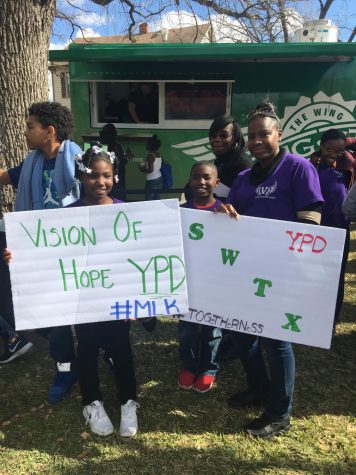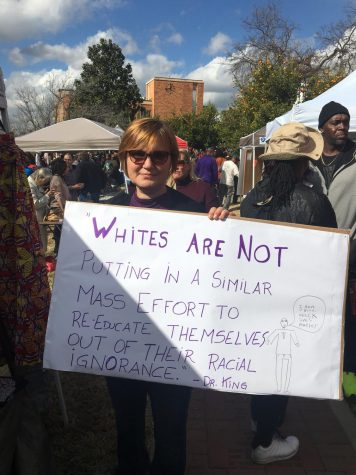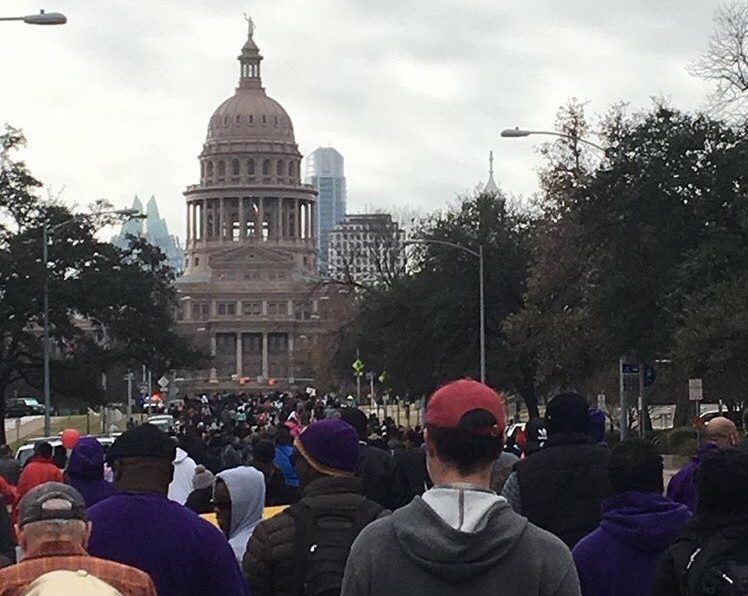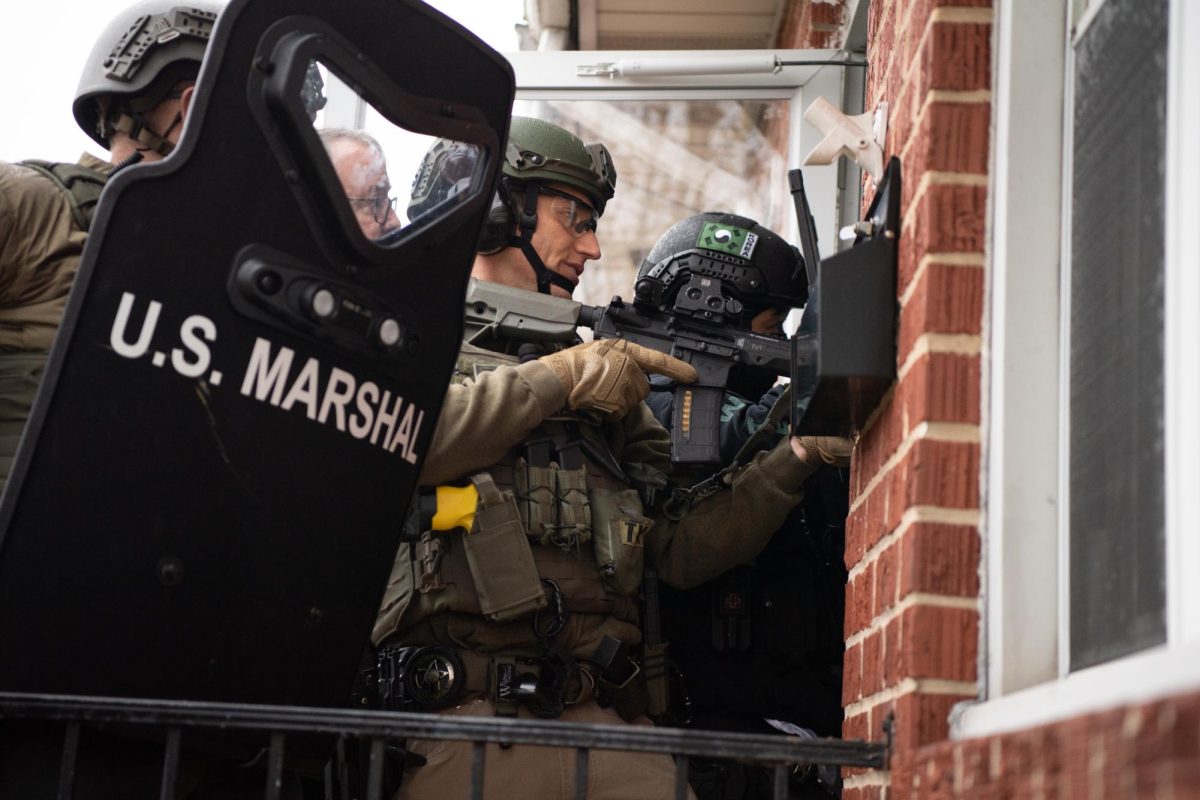Austinites march to honor the memory of civil rights leader, celebrate strides in equality.
As Jan. 15, Dr. Martin Luther King Jr.’s 89th birthday, approached, Austin was reminded of his legacy, fighting for the rights of African Americans all across the United States, as well as its own past history of segregation, including the controversial decision to shut down the original Anderson High School. Austin has worked hard to transform itself into an accepting place, but its past struggles with segregation still linger in the shadows.
According to NBC News, the Austin MLK March is one of the largest in the nation, attracting large crowds of all ages and backgrounds. The march embraces multiculturalism, uplifts diversity and celebrates Dr. King’s vision. Marchers gathered early on Jan. 15, walking from the University of Texas’s statue of King to the Capitol and then to Huston-Tillotson University.

Marchers gathered early in the morning to kick off the annual celebration, and with each stop, marchers took a short break and enjoyed programs celebrating Dr. King’s life and legacy. Hundreds of people attended, toting signs with quotes from Dr. King and supporting current causes like Black Lives Matter. After the march, the festival was lined with booths selling jewelry, artwork, clothing and food as well as nongovernmental organizations, or NGO’s, and activist organizations seeking signatures, support and hoping to spread awareness.
For more than 700 feet of their march, demonstrators walked along East Martin Luther King Jr. Boulevard, which endured a long and contentious fight over its name. The street and the battle to name it are a symbol of the struggle to earn public recognition for King’s monumental strides in civil rights. Austin is a blue oasis in the Texas sea of red, but that doesn’t mean it hasn’t faced its share of struggles.
In April of 1975, seven years after Dr. King’s assassination, city leaders proposed changing what previously was West 19th Street into Martin Luther King Jr. Boulevard because they wanted to honor Dr. King’s achievements. Many people resisted, arguing that it would be expensive to change signs, letterheads and promotions and that it would misrepresent the history of the city. Those against renaming the street pointed to the project’s cost. According to a report from The Austin American-Statesman, they estimated the cost of new Interstate exit signs to be $40,000 to $200,000 because of the length of King’s full name. Nonetheless, the city council voted in favor of renaming the street.
Quickly after the decision, the exit signs east of the Interstate were changed, yet the signs to the west stayed the same. It remained West 19th Street into May, and with the formation of the “West 19th Street Association,” there seemed to be no hope for any change in the future. The association opposed the renaming any street names in Austin without the permission of the property owners, and tried to invoke a law from 1929 to justify the position that property owners held the sole rights to determine street names. In November, the Austin Black Assembly denounced the West 19th Street Association, saying their tactics would not work. In the end, the Austin Black Assembly was right—all signage was changed to honor Martin Luther King Jr.
Sophomores Steven Shearer and Kien Johnson were among the McCallum students who joined in on the MLK Day festivities. Both students walked from the University of Texas to the Capitol. At both locations, there were speakers who recited speeches by Dr. King and related personal stories.

“A lot of the speakers there were incredibly inspiring,” Johnson said. “[They] just had these amazing backgrounds that would take lifetimes for someone like me to achieve. It felt really humbling to hear them talk. It made me realize how much impact I can make while at the same time letting me know how little I am, how I really haven’t done that much.”
While Johnson has been attending the annual MLK march since 2010, this was Shearer’s first year to attend. When asked about how the event has grown or changed, Johnson said that the overall premise remained.
“The primary thought was unity—not division—of African-Americans across Austin,” Johnson said. “[There] was a lot of acceptance and a lot of honoring of other ethnic backgrounds … for showing up and showing their support although they made it very clear that the main thing on their agenda today was Black Rights and Black lives.”
.









Jessica montoya • Oct 4, 2018 at 10:06 am
MLK was a inspiring person who tryed to solve things with peace and will always be remebered.even after all the time that has passed he wont ever be forgoten .
Cole T. • Feb 28, 2018 at 2:24 pm
MLK was a shining star in a tar pit of hate during his time. He never had a chance to look at his achievements since he was murdered so young. He didn’t get to see all the good he did. He didn’t get to see how many people owe so much to him. He didn’t get so he what he accomplished. I’m incredibly glad that MLK day is still being celebrated to this day, and his life is still being honored.